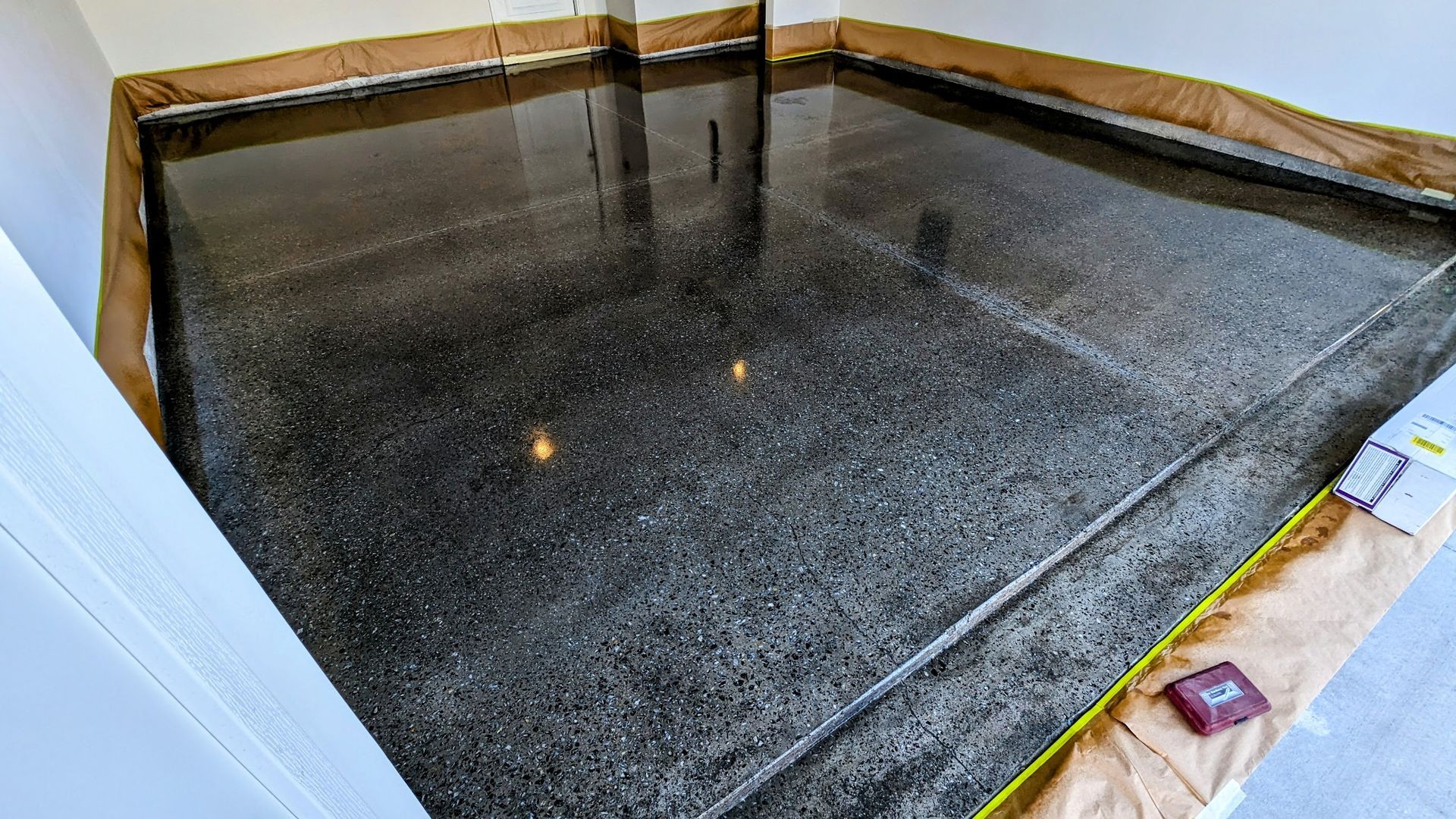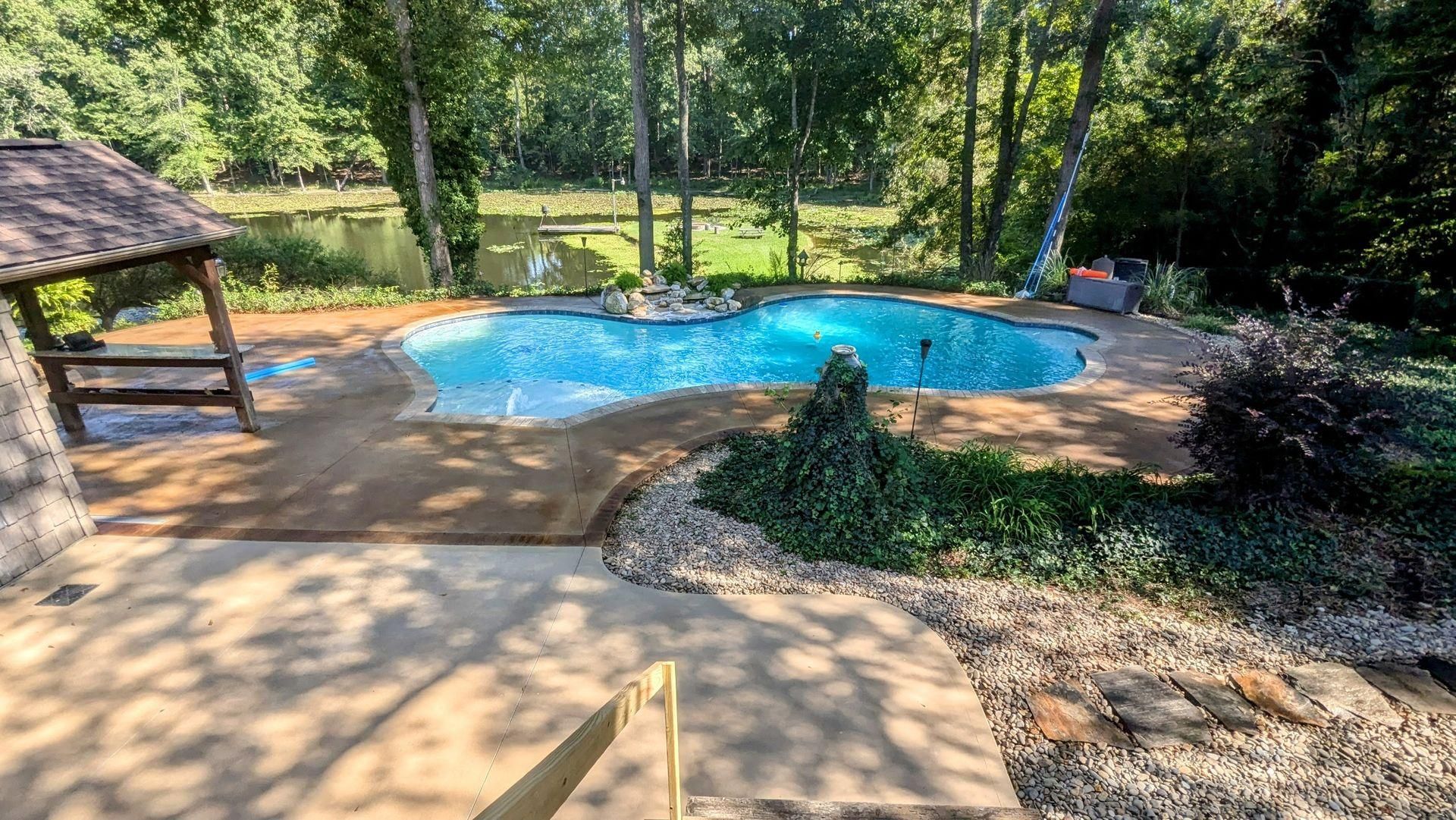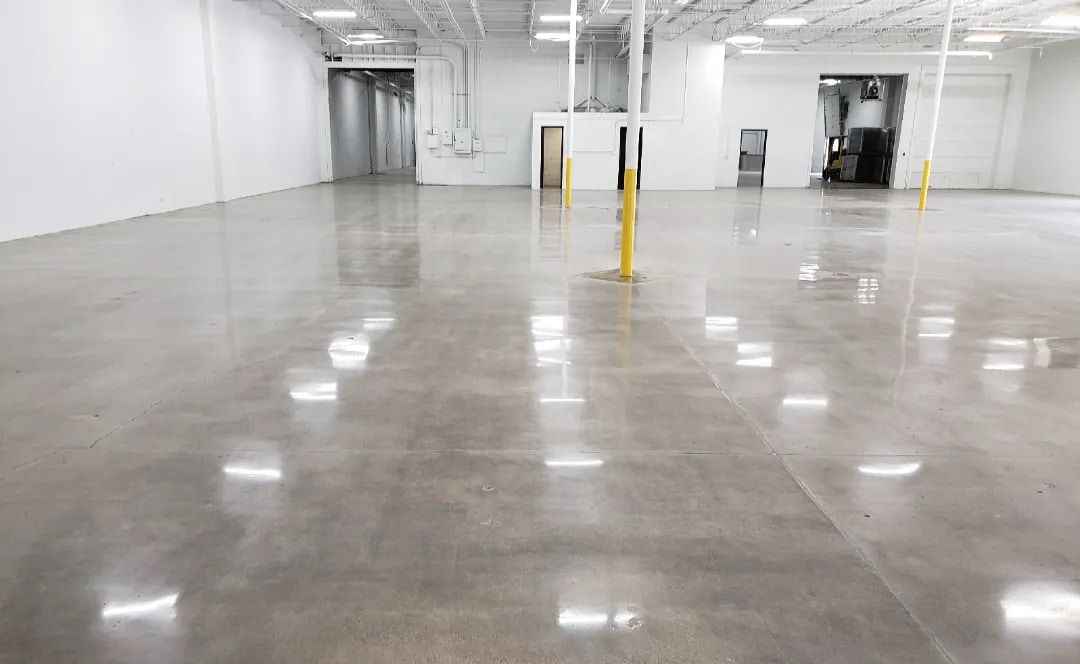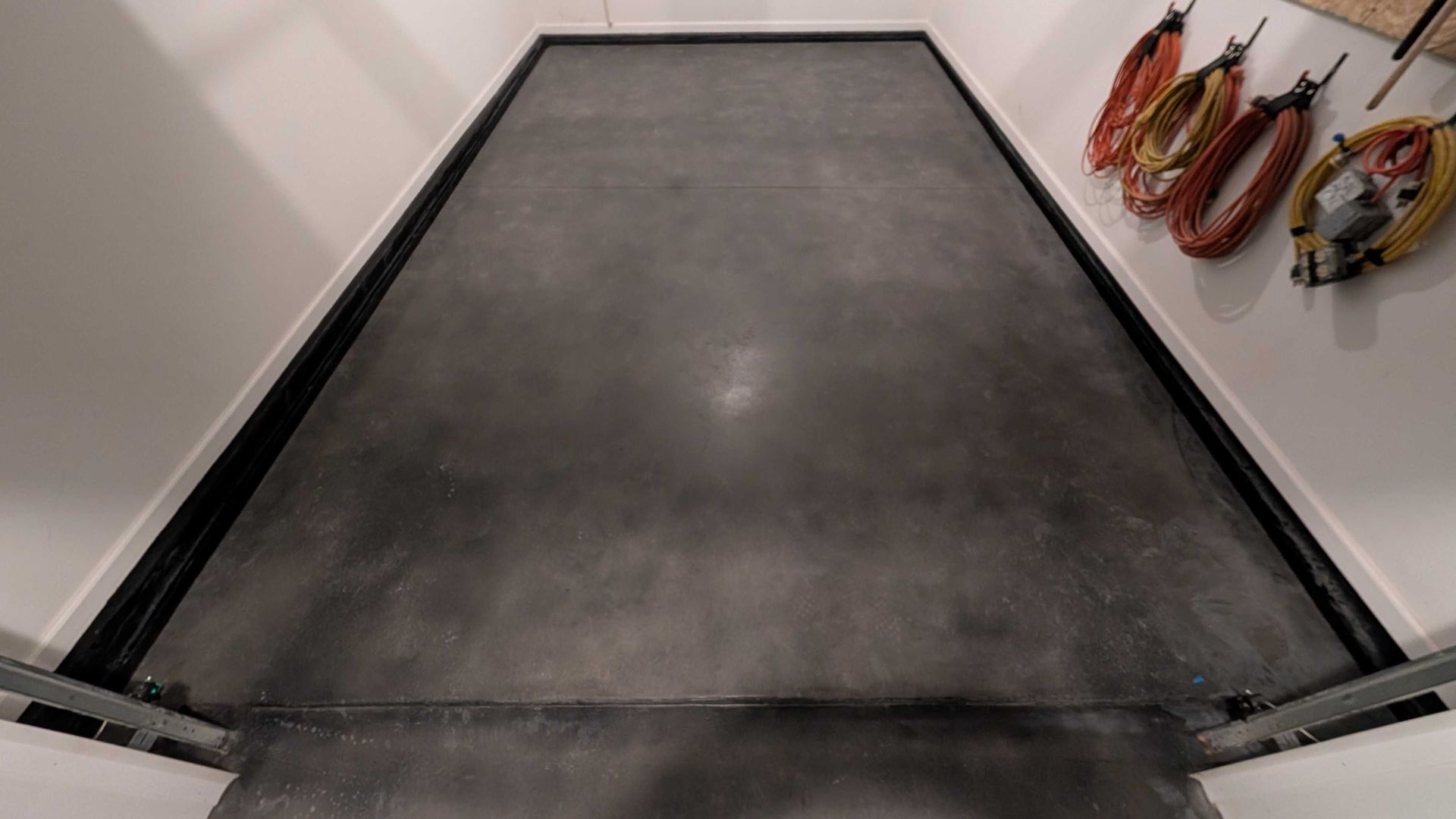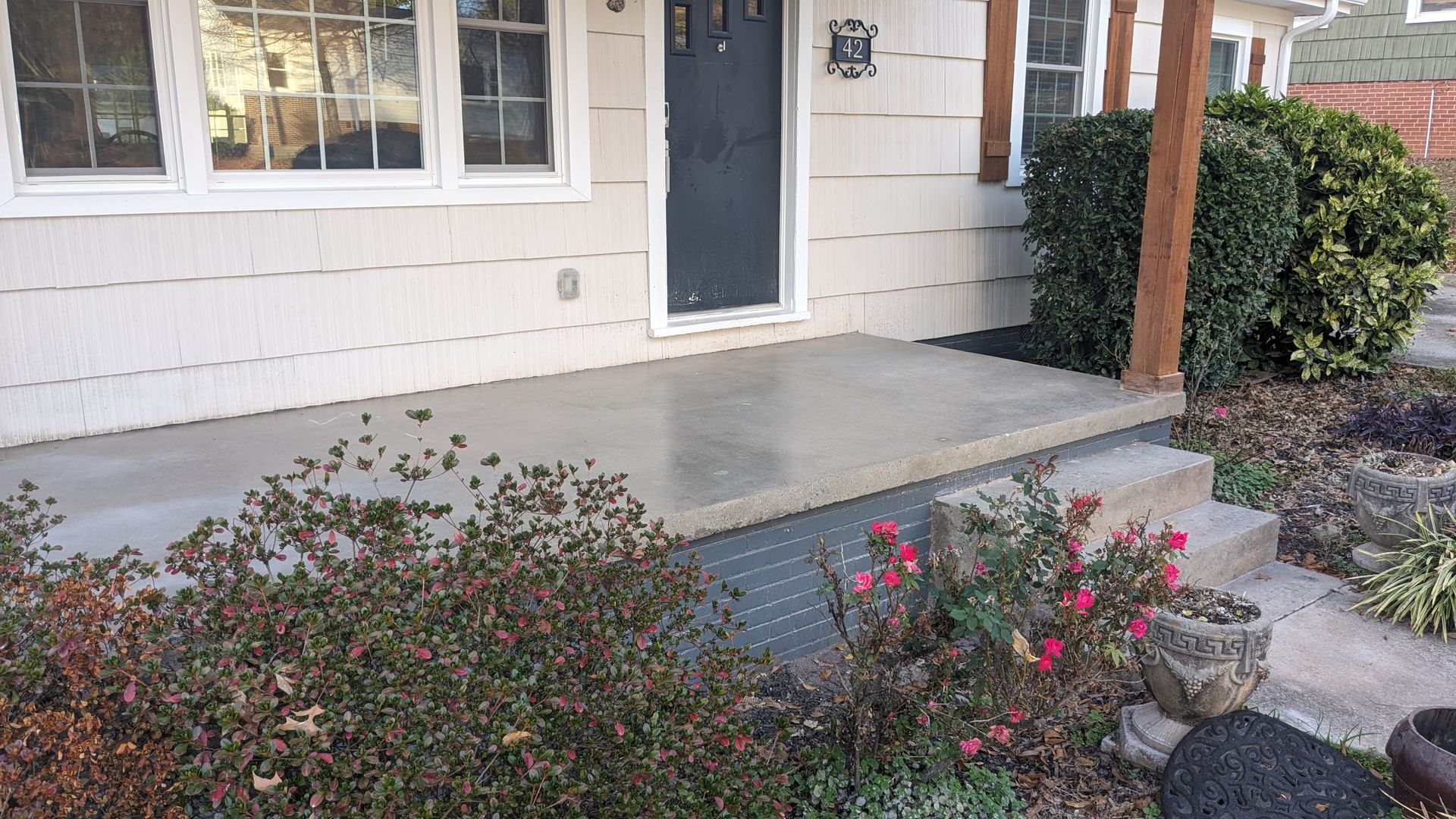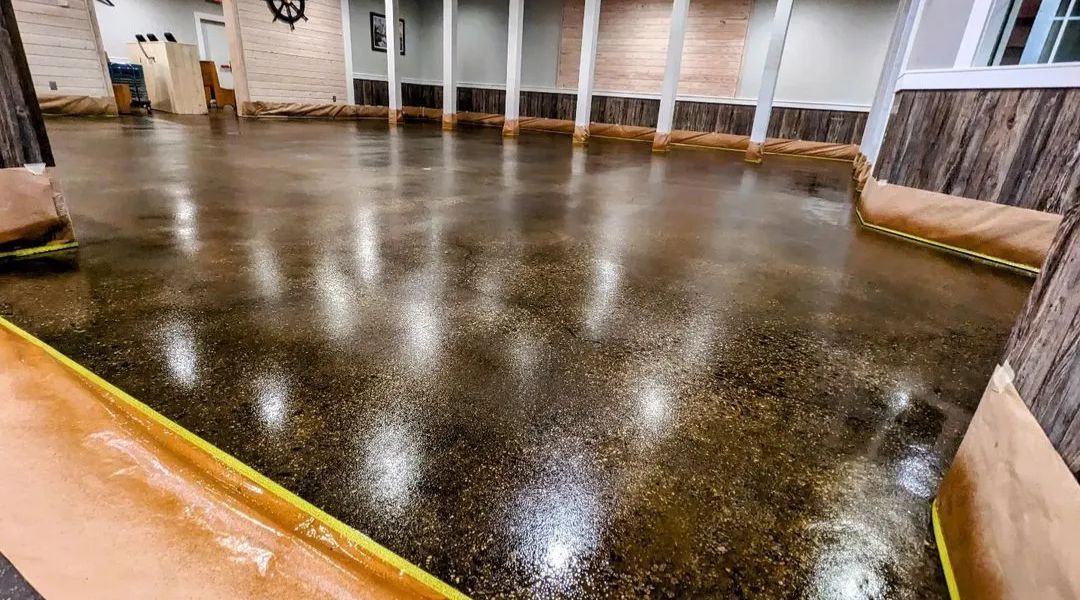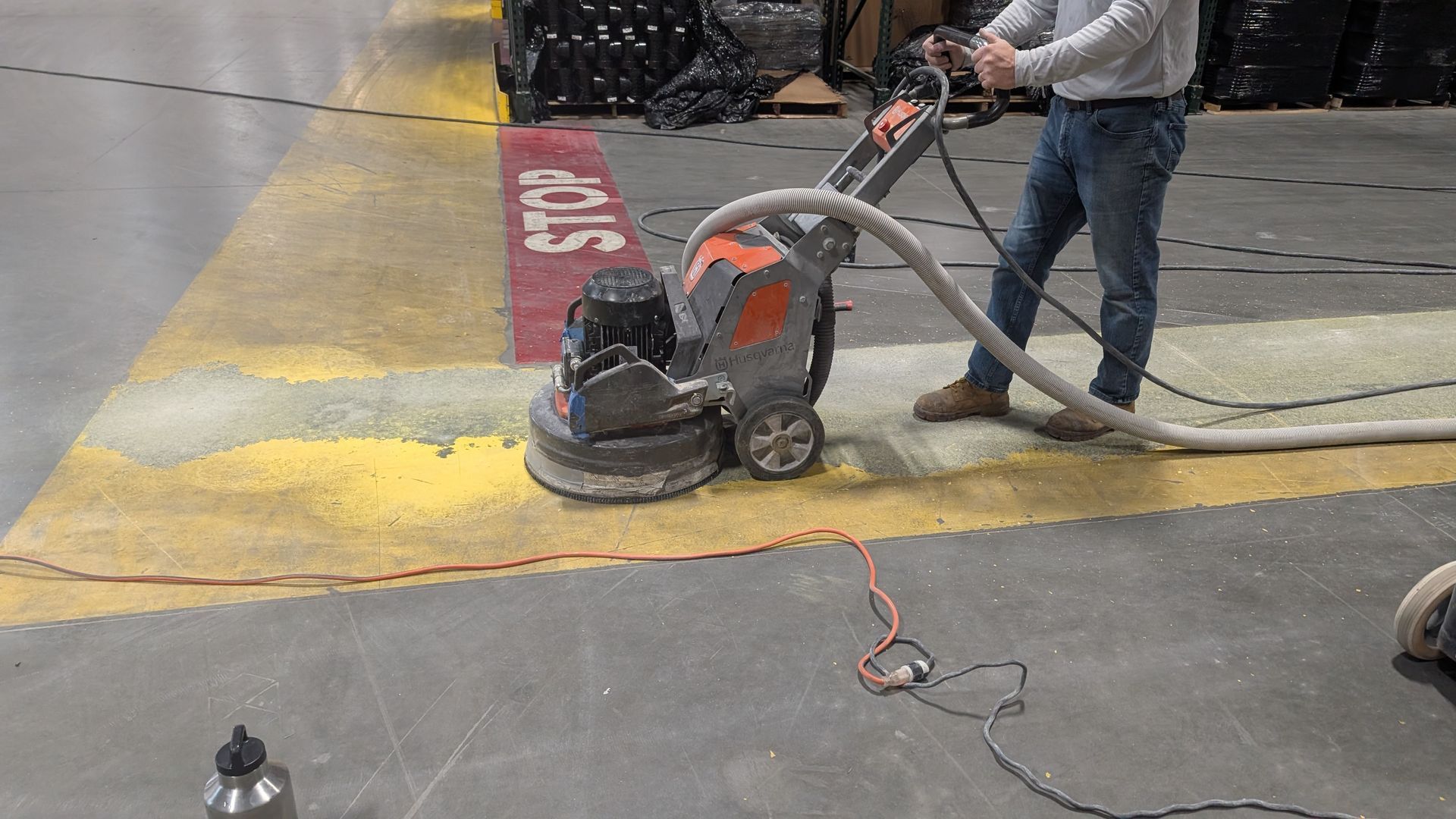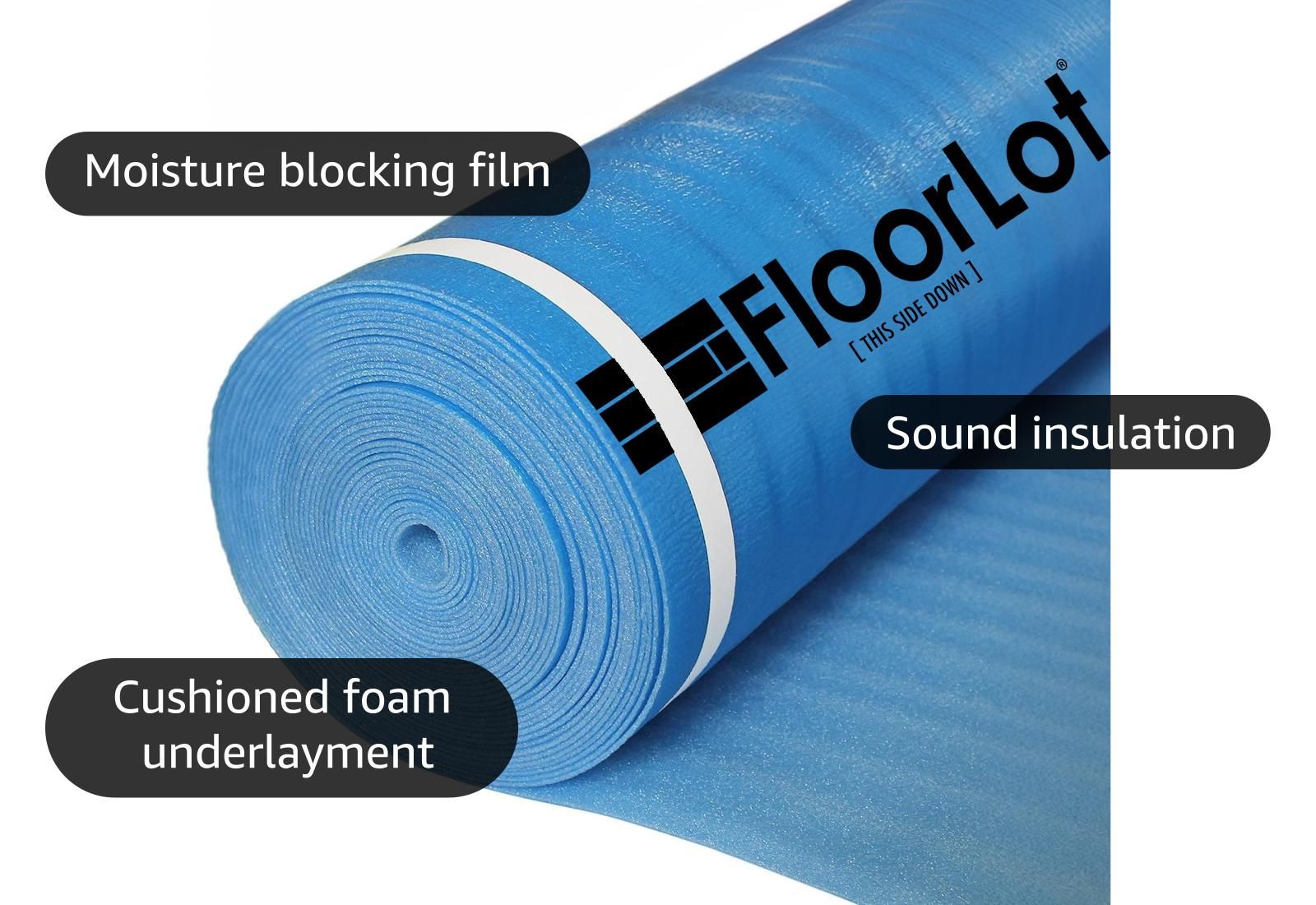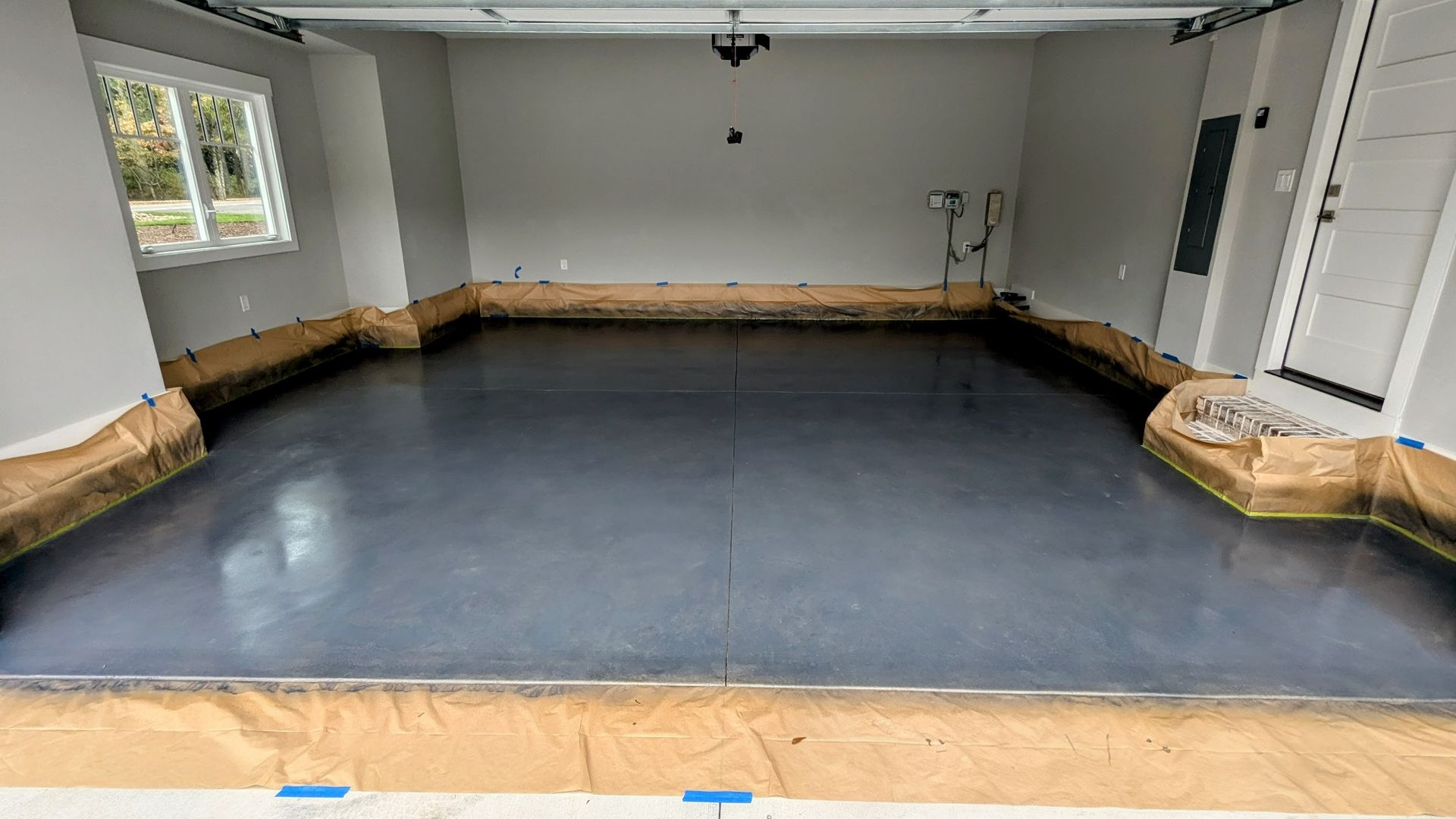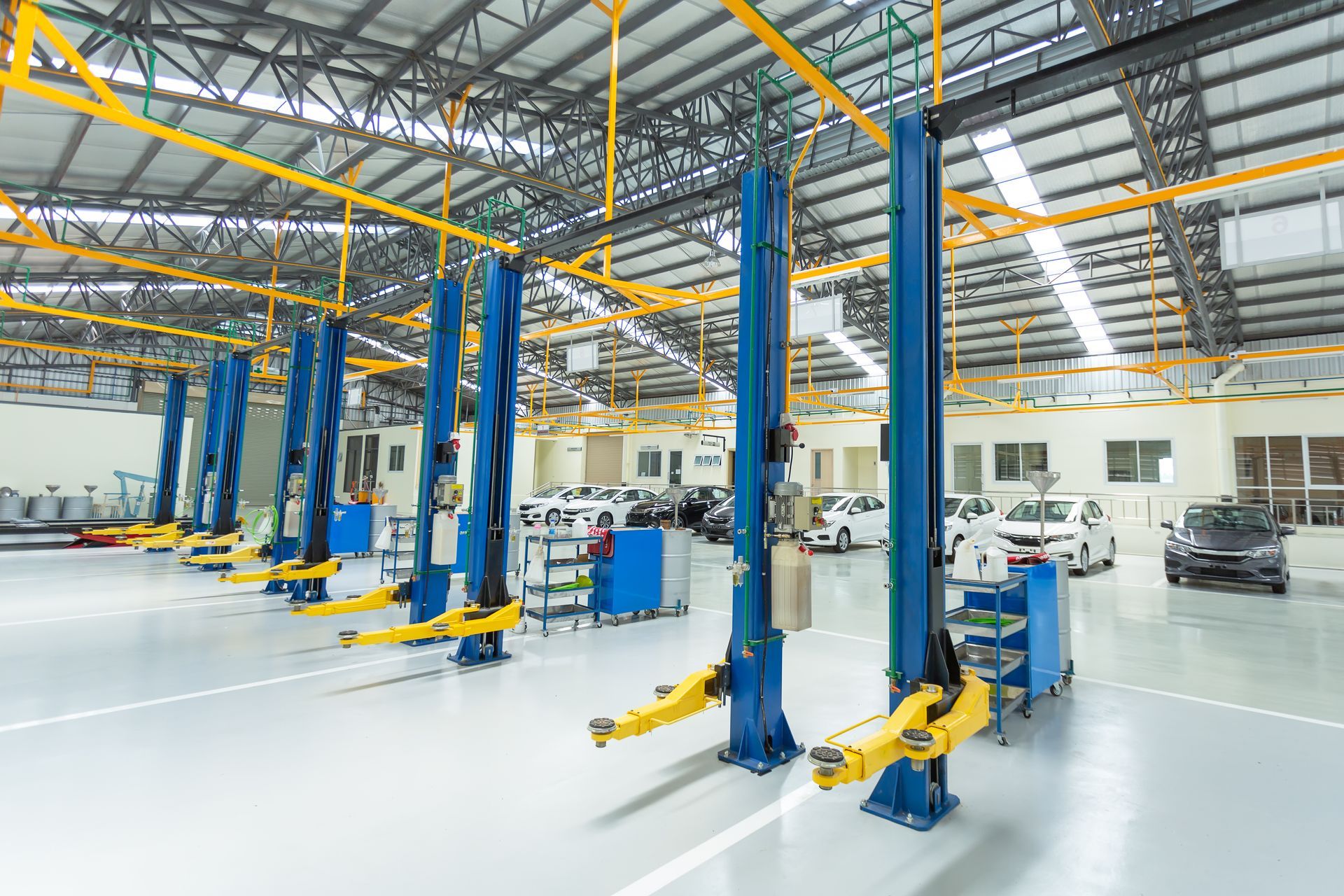Protect High-Traffic Areas with Industrial Epoxy Flooring
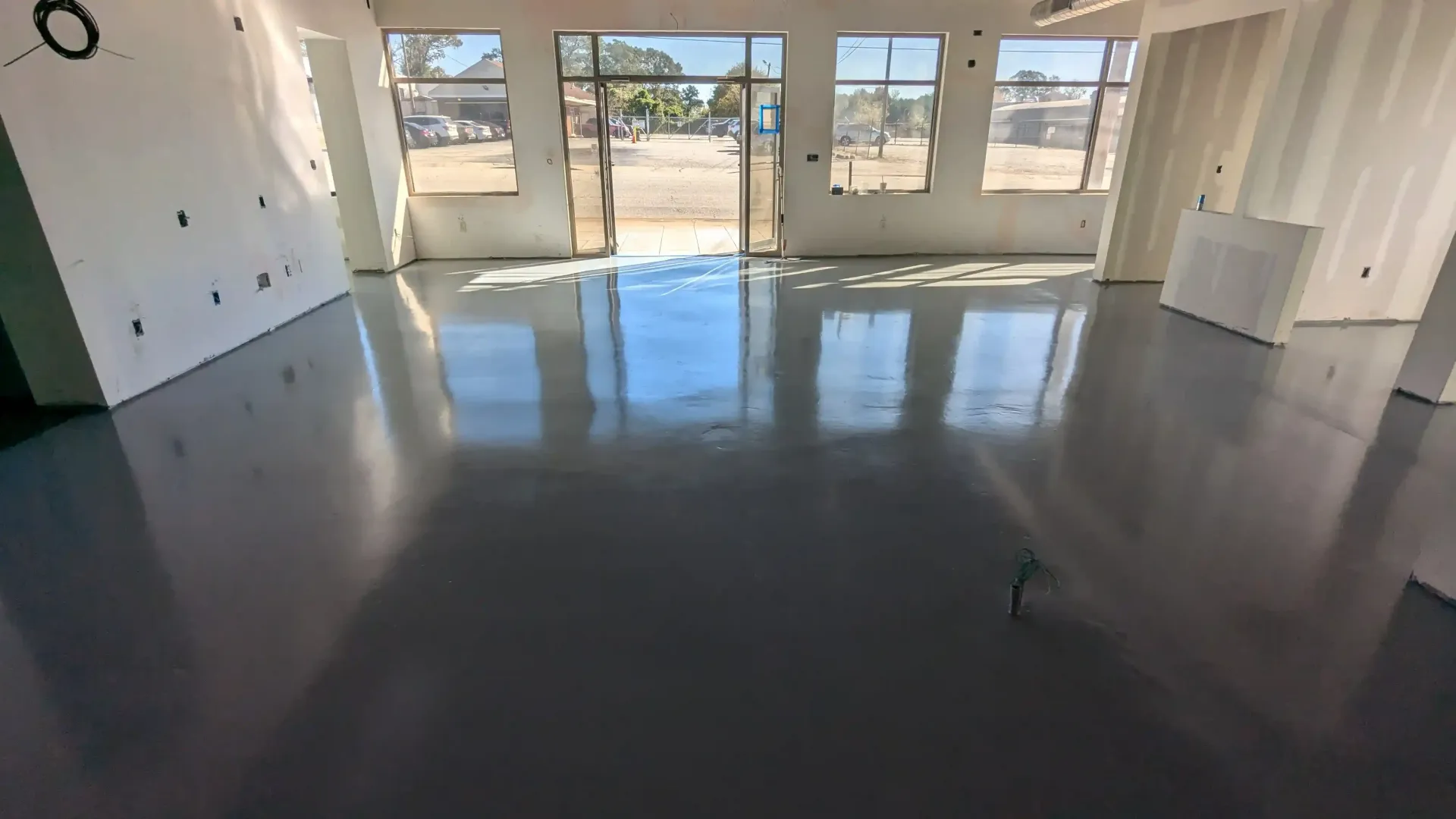
Busy floors take a beating. Foot traffic, heavy machinery, and constant use cause cracks, stains, and wear. Over time, this damage creates safety hazards, increases maintenance costs, and shortens the life of your floors. If left untreated, small issues can turn into expensive repairs or even full replacements.
Industrial epoxy flooring is the solution. It seals, strengthens, and protects your concrete, making it resistant to damage, spills, and daily wear. The smooth, seamless surface is easy to clean, reducing dust and improving safety.
This article explains how epoxy flooring extends floor life, lowers maintenance costs, and keeps high-traffic areas safe and functional. If you want a durable, cost-effective solution for your floors, keep reading.
Why Epoxy Flooring is Perfect for High-Traffic Areas
Epoxy isn’t just a surface coating—it’s a high-performance flooring solution that bonds directly to concrete, creating a seamless and resilient surface. Here’s why it’s a go-to choice for high-traffic spaces:
- Unmatched Durability – High-traffic spaces need floors that can handle constant movement, heavy loads, and tough conditions. Epoxy flooring forms a strong, impact-resistant surface that holds up under forklifts, machinery, and foot traffic without cracking or chipping. Unlike bare concrete, which wears down over time, epoxy lasts for years with minimal upkeep.
- Chemical & Stain Resistance – Warehouses, factories, and commercial kitchens deal with spills daily. Oil, chemicals, and food stains can seep into untreated concrete, leading to permanent damage and costly repairs. Epoxy creates a sealed, non-porous barrier that repels liquids, making it easy to wipe up messes without staining or weakening the floor.
- Easy to Clean & Maintain – Dust, dirt, and grime build up quickly in busy areas. Epoxy’s smooth surface prevents dust accumulation and makes cleaning simple. A quick sweep and mop keep it looking fresh, and there’s no need for waxing or expensive treatments.
- Slip-Resistant Options – Safety matters in high-traffic spaces. Epoxy coatings can include textured additives to improve traction, reducing the risk of slips and falls. This is especially useful in wet or oily environments.
- Enhanced Appearance – Epoxy isn’t just tough—it looks great too. Choose from solid colors, decorative flakes, or high-gloss finishes to improve the look of any space while boosting durability.
Industries That Benefit from Epoxy Flooring
Epoxy flooring isn’t just for warehouses. It’s widely used in:
- Manufacturing Facilities – Handles machinery, forklifts, and heavy equipment without cracking or chipping, making it perfect for warehouses and industrial plants.
- Retail Stores – Provides a sleek, professional look while standing up to constant foot traffic from customers and employees.
- Hospitals & Healthcare Facilities – A hygienic, seamless surface that prevents bacteria buildup and is easy to sanitize for a cleaner environment.
- Automotive Shops & Garages – Resists oil spills, chemicals, and tire marks, keeping floors looking clean and safe for workers.
- Commercial Kitchens & Restaurants – Offers a non-slip, food-safe surface that meets health and safety regulations while resisting grease and moisture.
- Whether it’s a high-traffic business, industrial setting, or healthcare space, epoxy flooring delivers long-lasting performance and protection.
Epoxy Flooring Options for Maximum Protection
Not all epoxy floors are the same. The right system depends on your space, the level of traffic, and specific needs like slip resistance or static control. Here are the most common types of epoxy flooring and their benefits:
- Self-Leveling Epoxy – This option creates a seamless, smooth surface that hides imperfections in the underlying concrete. It’s perfect for showrooms, commercial spaces, and offices where a polished, professional look matters. The glossy finish reflects light, enhancing visibility and giving the space a clean, modern feel.
- Quartz-Filled Epoxy – If durability and slip resistance are top priorities, quartz-filled epoxy is a great choice. This system combines epoxy resin with quartz grains, making it highly resistant to heavy wear and providing extra traction. It’s commonly used in commercial kitchens, locker rooms, and hospitals, where safety and hygiene are essential.
- Anti-Static Epoxy (ESD Flooring) – For environments where static electricity can cause damage, such as electronics manufacturing, data centers, and laboratories, anti-static epoxy prevents electrical buildup. This specialized flooring system protects sensitive equipment and reduces the risk of static discharge, ensuring a safe and controlled workspace.
- Epoxy Mortar Flooring – The toughest and most impact-resistant option, epoxy mortar is made with a mix of epoxy resin and graded aggregates, making it strong enough to withstand heavy machinery, dropped tools, and extreme loads. It’s ideal for industrial plants, warehouses, and factories that see continuous use.
- Graveled Epoxy – If aesthetics are just as important as strength, graveled epoxy provides a decorative yet highly durable surface. Often used in hotels, restaurants, and high-end retail stores, this flooring allows for custom designs, logos, and patterns while maintaining the benefits of epoxy’s durability.
Installation Process: What to Expect
A properly installed epoxy floor ensures long-lasting performance. The process includes:
- Surface Preparation – The concrete is thoroughly cleaned, and any cracks or damage are repaired. Grinding or shot blasting is used to create a textured surface for better adhesion.
- Primer Application – A bonding primer is applied to strengthen adhesion and prevent bubbles from forming.
- Epoxy Application – The epoxy mixture is poured and spread evenly using rollers or squeegees. For textured finishes, quartz or other additives may be broadcast into the wet coating.
- Curing Process – The floor is left to harden, forming a seamless, non-porous, and highly durable surface. This process typically takes 24 to 72 hours, depending on temperature and humidity.
- Optional Topcoat – A protective topcoat is applied for extra resistance to wear, moisture, chemicals, and UV damage, ensuring the floor lasts for years.
Why Professional Installation Matters
While DIY epoxy kits may seem appealing, professional installation offers superior results and ensures your floor stands the test of time. Here’s why hiring experts makes a difference:
- Correct Surface Prep – Proper grinding and repairs ensure the epoxy bonds correctly, preventing peeling, bubbling, or early failure.
- Even Application – Professionals apply epoxy smoothly and evenly, avoiding streaks, bumps, or uneven curing.
- Customized Solutions – Depending on your needs, a professional can adjust the coating for added slip resistance, chemical resistance, or decorative finishes.
- Long-Lasting Results – When installed correctly, epoxy floors last over 10 years with minimal maintenance, making them a cost-effective investment.
Final Thoughts
Industrial epoxy flooring isn’t just about looks—it’s about safety, durability, and long-term savings. Whether you’re managing a warehouse, commercial space, or industrial facility, investing in professional epoxy flooring protects your surfaces from damage, wear, and costly repairs.
At Zachary Daniel Concrete, we specialize in high-quality epoxy flooring solutions tailored to your space’s unique needs. If you’re ready to upgrade your floors with a durable, low-maintenance solution, contact us today to learn more!
